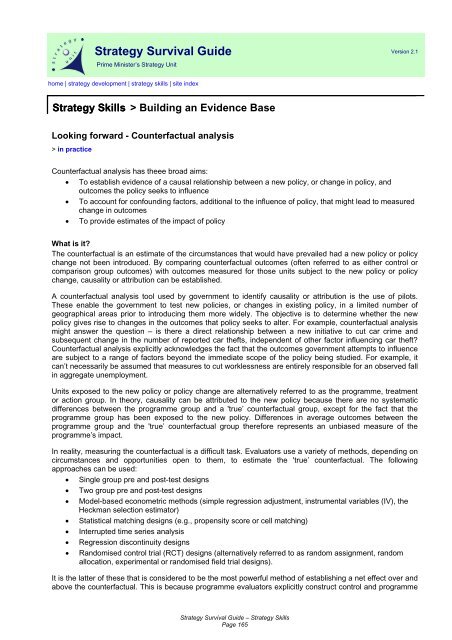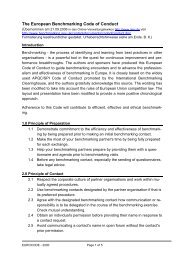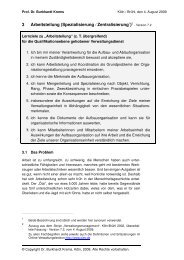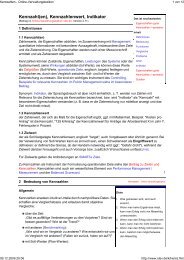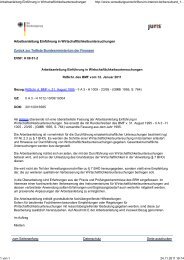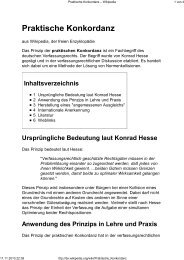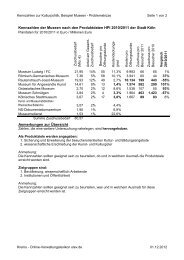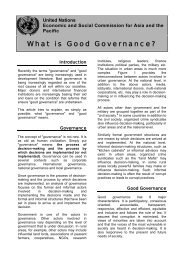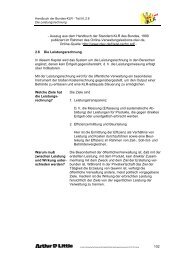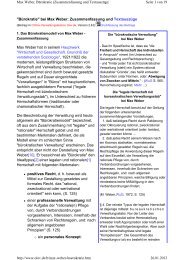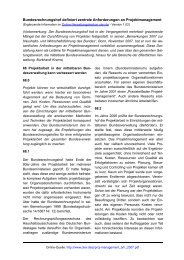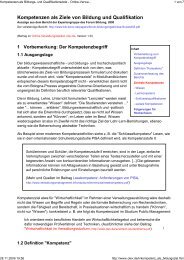Strategy Survival Guide
Strategy Survival Guide
Strategy Survival Guide
You also want an ePaper? Increase the reach of your titles
YUMPU automatically turns print PDFs into web optimized ePapers that Google loves.
<strong>Strategy</strong> <strong>Survival</strong> <strong>Guide</strong> Version 2.1<br />
Prime Minister’s <strong>Strategy</strong> Unit<br />
home | strategy development | strategy skills | site index<br />
<strong>Strategy</strong> Skills<br />
> Building an Evidence Base<br />
Looking forward - Counterfactual analysis<br />
> in practice<br />
Counterfactual analysis has theee broad aims:<br />
• To establish evidence of a causal relationship between a new policy, or change in policy, and<br />
outcomes the policy seeks to influence<br />
• To account for confounding factors, additional to the influence of policy, that might lead to measured<br />
change in outcomes<br />
• To provide estimates of the impact of policy<br />
What is it?<br />
The counterfactual is an estimate of the circumstances that would have prevailed had a new policy or policy<br />
change not been introduced. By comparing counterfactual outcomes (often referred to as either control or<br />
comparison group outcomes) with outcomes measured for those units subject to the new policy or policy<br />
change, causality or attribution can be established.<br />
A counterfactual analysis tool used by government to identify causality or attribution is the use of pilots.<br />
These enable the government to test new policies, or changes in existing policy, in a limited number of<br />
geographical areas prior to introducing them more widely. The objective is to determine whether the new<br />
policy gives rise to changes in the outcomes that policy seeks to alter. For example, counterfactual analysis<br />
might answer the question – is there a direct relationship between a new initiative to cut car crime and<br />
subsequent change in the number of reported car thefts, independent of other factor influencing car theft?<br />
Counterfactual analysis explicitly acknowledges the fact that the outcomes government attempts to influence<br />
are subject to a range of factors beyond the immediate scope of the policy being studied. For example, it<br />
can’t necessarily be assumed that measures to cut worklessness are entirely responsible for an observed fall<br />
in aggregate unemployment.<br />
Units exposed to the new policy or policy change are alternatively referred to as the programme, treatment<br />
or action group. In theory, causality can be attributed to the new policy because there are no systematic<br />
differences between the programme group and a 'true’ counterfactual group, except for the fact that the<br />
programme group has been exposed to the new policy. Differences in average outcomes between the<br />
programme group and the 'true’ counterfactual group therefore represents an unbiased measure of the<br />
programme’s impact.<br />
In reality, measuring the counterfactual is a difficult task. Evaluators use a variety of methods, depending on<br />
circumstances and opportunities open to them, to estimate the 'true’ counterfactual. The following<br />
approaches can be used:<br />
• Single group pre and post-test designs<br />
• Two group pre and post-test designs<br />
• Model-based econometric methods (simple regression adjustment, instrumental variables (IV), the<br />
Heckman selection estimator)<br />
• Statistical matching designs (e.g., propensity score or cell matching)<br />
• Interrupted time series analysis<br />
• Regression discontinuity designs<br />
• Randomised control trial (RCT) designs (alternatively referred to as random assignment, random<br />
allocation, experimental or randomised field trial designs).<br />
It is the latter of these that is considered to be the most powerful method of establishing a net effect over and<br />
above the counterfactual. This is because programme evaluators explicitly construct control and programme<br />
<strong>Strategy</strong> <strong>Survival</strong> <strong>Guide</strong> – <strong>Strategy</strong> Skills<br />
Page 165


